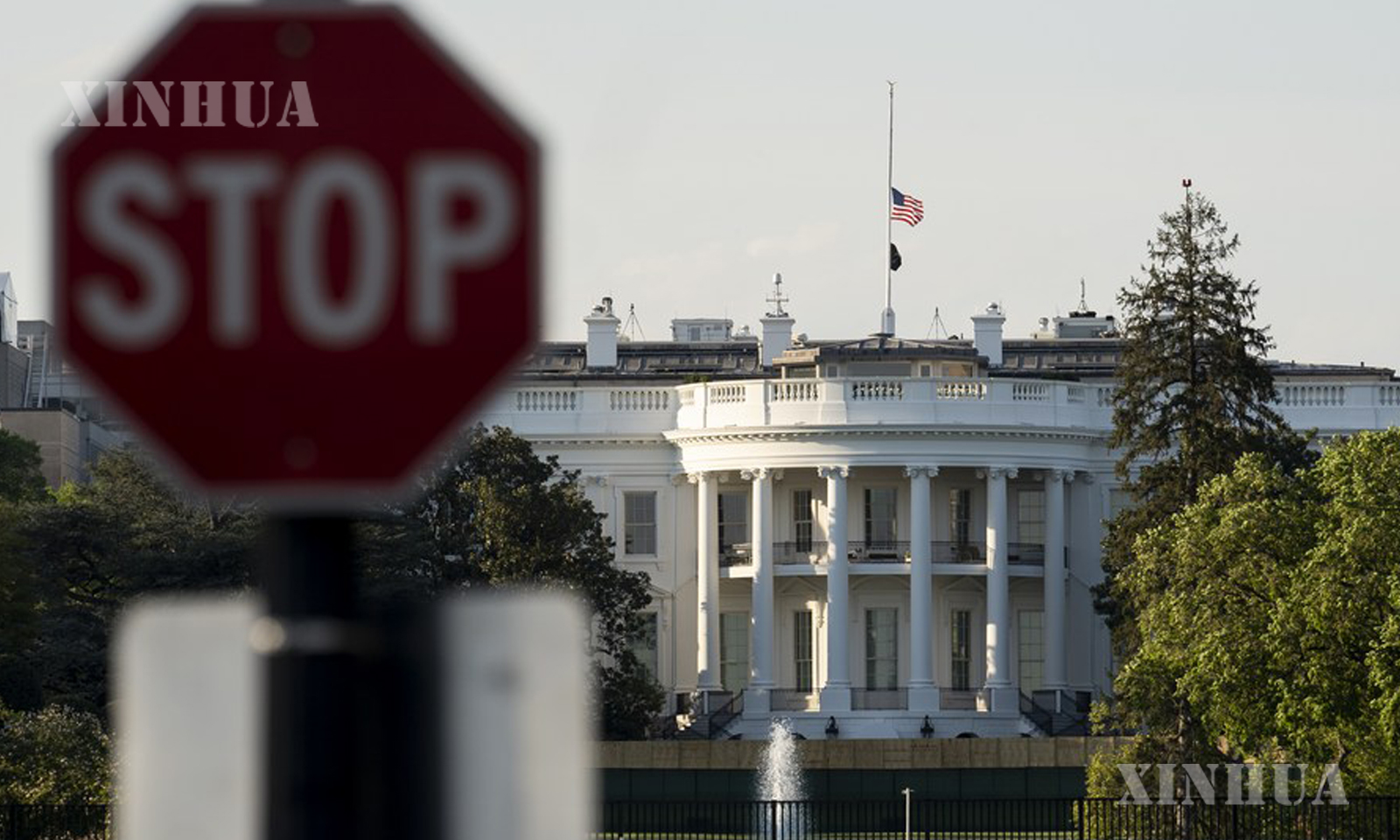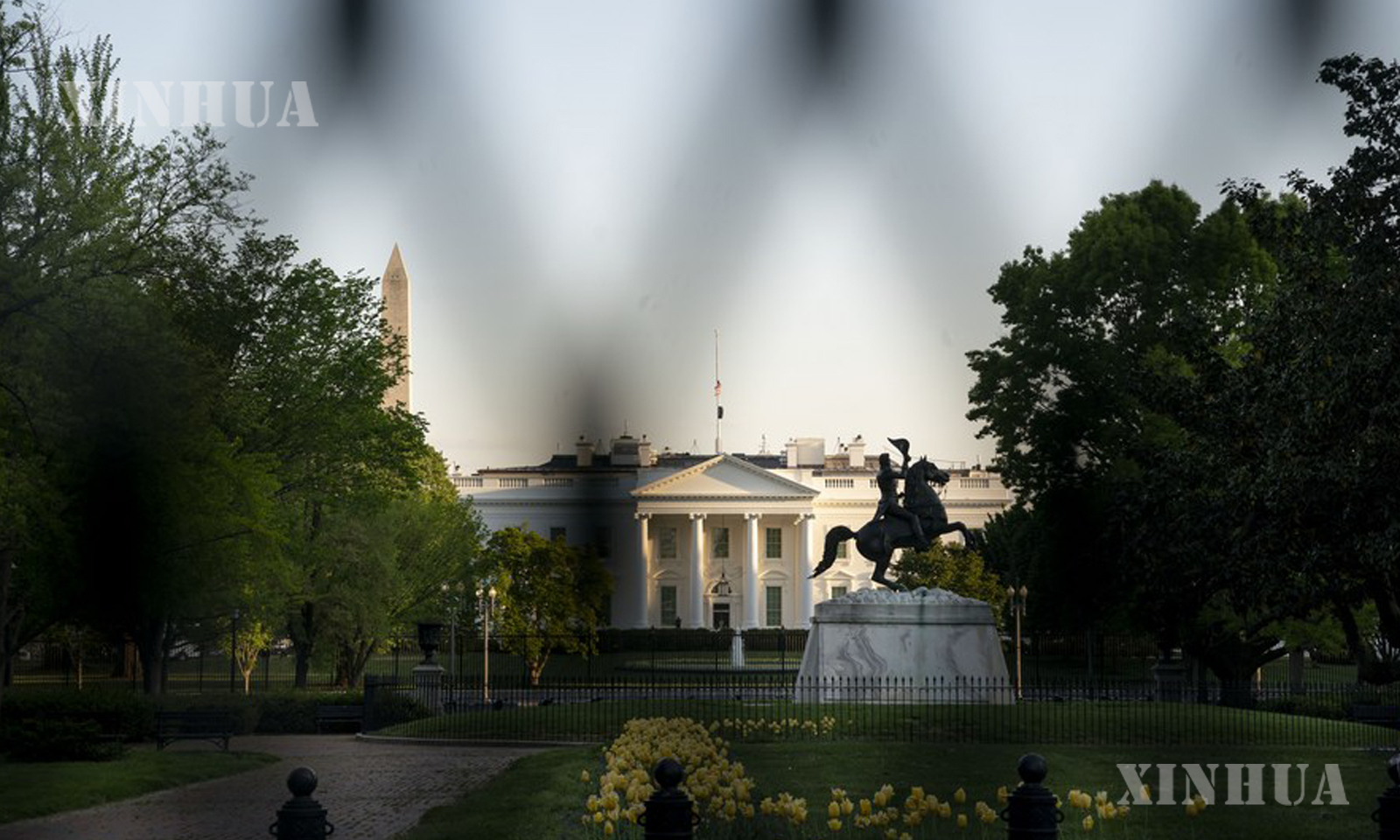North America
အမေရိကန်ဦးဆောင်သည့် အင်ဒို-ပစိဖိတ်စီးပွားရေးမူဘောင်က လွတ်လပ်သော ကုန်သွယ်မှု သဘောတူညီချက်ထက် နိုင်ငံရေးလေလုံး ပိုများနေကြောင်း ကမ္ဘောဒီးယားပညာရှင်ပြော

ဖနွမ်းပင် ၊ မေ ၃၀ ရက်(ဆင်ဟွာ)
အမေရိကန်နိုင်ငံက ဦးဆောင်သည့် အင်ဒို-ပစိဖိတ်စီးပွားရေးမူဘောင် (IPEF)သည် လွတ်လပ်သော ကုန်သွယ်မှုသဘောတူညီချက်ထက် နိုင်ငံရေးလေလုံး ပိုများနေကြောင်း နာမည်ကြီး ကမ္ဘောဒီးယားပညာရှင်တစ်ဦးက ပြောကြားခဲ့သည်။ကမ္ဘောဒီးယား တော်ဝင်အကယ်ဒမီ၏ နိုင်ငံတကာဆက်ဆံရေးဌာန ညွှန်ကြားရေးမှူးချုပ် Kin Phea က IPEF သည် အာဆီယံအတွင်း နိုင်ငံများကို ကွဲပြားမှုဖြစ်အောင် လှုံ့ဆော်ခြင်း နှင့် ဒေသတွင်းပူးပေါင်းဆောင်ရွက်မှု ဖရိုဖရဲပြိုကွဲစေရန် စီစဉ်ထားခြင်း ဖြစ်ကြောင်း ပြောကြားခဲ့သည်။
“IPEF က လွတ်လပ်တဲ့ကုန်သွယ်မှုသဘောတူညီချက်တစ်ရပ် မဟုတ်ပါဘူး ။ ဈေးကွက်အခွင့်အလမ်း ဒါမှမဟုတ် အခွန်လျှော့ချတာတွေ ဖော်ပြထားတာ မရှိပါဘူး။”ဟု ၎င်းက ဆင်ဟွာသို့ ပြောကြားခဲ့သည်။ “ဒါက ထိရောက်မှုထက် အမှတ်သညာက ပိုပါတယ်။ ဒါက ခိုင်မာတဲ့လုပ်ဆောင်ချက်ထက် နိုင်ငံရေးလေလုံး ဖြစ်ပါတယ်။”ဟု ပြောကြားခဲ့သည်။

အမေရိကန်နိုင်ငံ ဝါရှင်တန်ဒီစီရှိ အိမ်ဖြူတော်အား ၂၀၂၁ ခုနှစ် ဧပြီလ ၂၀ ရက်တွင် တွေ့ရစဉ်(ဆင်ဟွာ)
အမေရိကန်နိုင်ငံ သမ္မတ ဂျိုးဘိုင်ဒန်က IPEF အား တရားဝင်မိတ်ဆက်ခြင်းသည် ဒေသတွင်း၌ တရုတ်နိုင်ငံအား တန်ပြန်ရန် နှင့် ဒေသတွင်းဘက်စုံစီးပွားရေး ပူးပေါင်းဆောင်ရွက်မှုသဘောတူစာချုပ်(RCEP)နှင့် ယှဉ်ပြိုင်ရန် နောက်ထပ်မဟာဗျူဟာဖြစ်ကြောင်း ညွှန်ကြားရေးမှူးချုပ် Kin Phea က ပြောကြားခဲ့သည်။
“အမေရိကန်က အင်ဒို-ပစိဖိတ် မဟာဗျူဟာ ၊ အမေရိကန် ၊ ဂျပန် ၊ ဩစတြေးလျနဲ့ အိန္ဒိယ နိုင်ငံတို့အကြား လေးပွင့်ဆိုင် လုံခြုံရေးဆွေးနွေးပွဲ(QUAD) ၊ အမေရိကန် ၊ ဗြိတိန် နဲ့ ဩစတြေးလျ နိုင်ငံတို့အကြား စစ်ဘက်ဆိုင်ရာ သဘောတူစာချုပ် နဲ့ သြစတြေးလျ ၊ ကနေဒါ ၊ ဗြိတိန် ၊ အမေရိကန် နှင့် နယူးဇီလန် နိုင်ငံတို့ ပါဝင်တဲ့ (Five Eyes)ထောက်လှမ်းရေး မဟာမိတ်အဖွဲ့တွေ အပါအဝင် မဟာမိတ်အလွှာများစွာ ထူထောင်ခြင်းဖြင့် တရုတ်နိုင်ငံအား ဝိုင်းပတ်ထိန်းချုပ်ရန် ကြိုးစားနေပါတယ်။”ဟု ၎င်းက ပြောကြားခဲ့သည်။
အမေရိကန်နိုင်ငံသည် တရုတ်နိုင်ငံအား ထိန်းချုပ်ရန် ၎င်းတို့၏ နိုင်ငံရေးအရ ကြိုးပမ်းအားထုတ်မှုတွင် အာရှ-ပစိဖိတ်ဒေသအတွင်းရှိ နိုင်ငံပေါင်း များစွာနှင့်အတူ ၎င်းတို့၏ ဆက်ဆံရေး ခိုင်မာစေရန် IPEF အား နောက်ထပ်ကိရိယာအဖြစ် အသုံးပြုလိမ့်မည် ဖြစ်ကြောင်း ပညာရှင်က ပြောကြားခဲ့သည်။
“IPEF က တရုတ်နိုင်ငံ နဲ့ အမေရိကန်နိုင်ငံအကြား ကုန်သွယ်မှုသဘောထားကွဲလွဲမှုရဲ့ အားပြိုင်မှု နောက်ထပ်အကြောင်းရင်း ဖြစ်နိုင်ပြီးတော့ ပထဝီနိုင်ငံရေး ခက်ခဲရှုပ်ထွေးမှု ပိုဖြစ်လာနိုင်ပါတယ်။”ဟု ၎င်းက ပြောကြားခဲ့သည်။
ကမ္ဘာ့စီးပွားရေး၏ ကျောရိုးအနေဖြင့် တရုတ်နိုင်ငံသည် နိုင်ငံစုံပါဝင်မှု နှင့် ကမ္ဘာလုံးဆိုင်ရာဝါဒတွင် ယုံကြည်မှု ဆက်လက်တည်ရှိစေရန် ၊ ပွင့်လင်းပြီး မူမတူယှဉ်တွဲမှု လက်ခံသော ကမ္ဘာ့စီးပွားရေးအား တည်ဆောက်ရန် ၊ အားလုံးပါဝင်သောတိုးတက်မှု နှင့် ရေရှည်တည်တံ့သော ဖွံ့ဖြိုးတိုးတက်မှုအတွက် လမ်းကြောင်းသစ်အား ရှေ့ဆောင်လမ်းပြရန် နှင့် အလားအလာကောင်းသော ကံကြမ္မာအကျိုးတူအသိုက်အဝန်းအား ပုံဖော်ရန် နိုင်ငံတကာ အသိုက်အဝန်းနှင့်အတူ လုပ်ဆောင်ရန် အမြဲအဆင်သင့်ရှိကြောင်း ပညာရှင်က ပြောကြားခဲ့သည်။
IPEF သည် RCEP နှင့် လုံးဝယှဉ်လို့မရကြောင်း ၊ RCEP သည် ဘက်ပေါင်းစုံပါဝင်သော အသင်းအဖွဲ့ ဖြစ်ပြီး အားလုံးသည် တူညီသောကုန်သွယ်မှုစည်းမျဉ်းများအောက်တွင် အသုံးပြုရမည် ဖြစ်သဖြင့် ပါဝင်သည့်နိုင်ငံများအားလုံး အကျိုးရှိရန် လက္ခဏာရှိကြောင်း ၎င်းက ပြောကြားခဲ့သည်။
RCEP သည် အားလုံးအကျုံးဝင်သော ကုန်သွယ်မှု ပြဌာန်းချက်တစ်ခုအောက်တွင် နှစ်ဦးနှစ်ဖက် လွတ်လပ်သောကုန်သွယ်မှုသဘောတူညီချက်ဖြင့် အားလုံးကို စီးပွားရေး အသိုင်းအဝိုင်းတစ်ခုအတွင်းသို့ ဆွဲယူသွားခြင်းကြောင့် တစ်စတစ်စဆိုးလာသော တစ်ဖက်သတ်ဝါဒကို ဖြိုဖျက်ရာတွင် အရေးပါကြောင်း ညွှန်ကြားရေးမှူးချုပ် Kin Phea က ပြောကြားခဲ့သည်။ RCEP သည် ကမ္ဘာအနှံ့ချမ်းသာဝပြောရေးအတွက် အလွန်စိတ်ချအားထားရသည့် အခြေခံမှုတွင် ခိုင်မာစေရန် ပူးပေါင်းကြိုးပမ်းအားထုတ်မှုများကို မီးမောင်းထိုးပြနေကြောင်း ၎င်းက ပြောကြားခဲ့သည်။
ဇန်နဝါရီ ၁ ရက်တွင် စတင်အသက်ဝင်ခဲ့သည့် ဒေသတွင်းဘက်စုံစီးပွားရေး ပူးပေါင်းဆောင်ရွက်မှုသဘောတူစာချုပ်(RCEP)သည် အာဆီယံ အဖွဲ့ဝင် ၁၀ နိုင်ငံ ဖြစ်သည့် ဘရူနိုင်း ၊ ကမ္ဘောဒီးယား ၊ အင်ဒိုနီးရှား ၊ လာအို ၊ မလေးရှား ၊ မြန်မာ ၊ ဖိလစ်ပိုင် ၊ စင်ကာပူ ၊ ထိုင်း နှင့် ဗီယက်နမ်နိုင်ငံတို့ နှင့် အဓိကကုန်သွယ်ဖက် ငါးနိုင်ငံဖြစ်သည့် တရုတ် ၊ ဂျပန် ၊ တောင်ကိုရီးယား ၊ ဩစတြေးလျ နှင့် နယူးဇီလန်တို့အကြား ကြီးမားသော ကုန်သွယ်မှုသဘောတူညီချက် ဖြစ်ကြောင်း သိရသည်။ (Xinhua)
————————–
(English Version)
Interview: U.S.-led IPEF more of political rhetoric than free trade agreement, says Cambodian scholar
“IPEF is not a free trade agreement. No market access or tariff reductions have been outlined. It’s more symbolic than effective. It’s political rhetoric rather than concrete action,” said Kin Phea, a renowned Cambodian scholar.
PHNOM PENH, May 29 (Xinhua) — The so-called Indo-Pacific Economic Framework (IPEF) led by the United States is more of political rhetoric than a free trade agreement, a renowned Cambodian scholar has said.
Kin Phea, director-general of the International Relations Institute at the Royal Academy of Cambodia, said the IPEF was designed to disrupt regional cooperation and foment divisions among countries in ASEAN.
“IPEF is not a free trade agreement. No market access or tariff reductions have been outlined,” he told Xinhua. “It’s more symbolic than effective. It’s political rhetoric rather than concrete action.”
Phea said the formal introduction of the IPEF by U.S. President Joe Biden is another strategy to counter China in the region and compete with the Regional Comprehensive Economic Partnership (RCEP).
“The U.S. has tried to contain and encircle China by establishing many layers of alliances, including the Indo-Pacific Strategy, the Quadrilateral Security Dialogue among the U.S., Japan, Australia and India (QUAD), the military pact among the U.S., Britain and Australia (AUKUS), and the Five Eyes,” he said.
The scholar said the United States would use the IPEF as another tool to solidify its relationships with a dozen of countries in the Asia-Pacific region, in its political endeavor to contain China.
“IPEF could be another cause of tension in trade friction between China and the U.S. and would bring more geopolitical complexity,” he said.
He said as the backbone of the world economy, China is always ready to work with the international community to restore confidence in multilateralism and globalization, build an open and pluralistic world economy, and blaze a new trail in inclusive growth and sustainable development, to shape a brighter shared future.
Phea said the IPEF is completely incomparable with the RCEP, which is multilateral and cooperative and whose structure is meant to benefit all participating countries as all will be governed under the same trade rules.
“The RCEP is instrumental in subverting creeping unilateralism because it pulls all bilateral free trade agreements into one economic sphere, under one blanket trade ruling,” Phea said. “RCEP highlights the joint efforts to cement a very solid basis for global prosperity.”
Entering into force on Jan. 1, the RCEP is a mega trade agreement between 10 ASEAN member states — Brunei, Cambodia, Indonesia, Laos, Malaysia, Myanmar, the Philippines, Singapore, Thailand and Vietnam — and its five major trade partners, namely China, Japan, South Korea, Australia and New Zealand. ■
Photo 1 – Photo taken on April 20, 2021 shows the White House in Washington, D.C., the United States. (Xinhua/Liu Jie)
Photo 2 – Photo taken on April 20, 2021 shows the White House in Washington, D.C., the United States. (Xinhua/Liu Jie)






